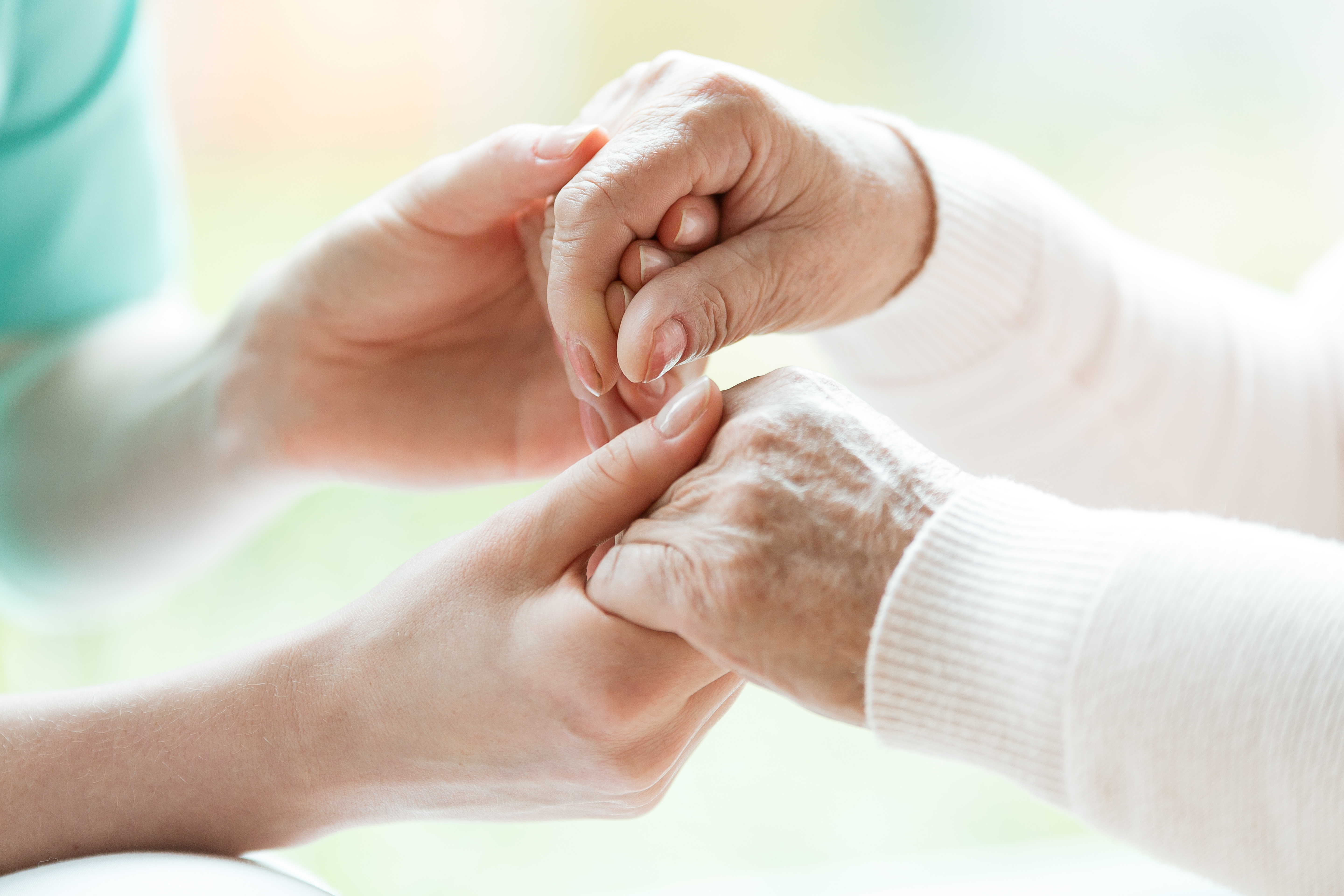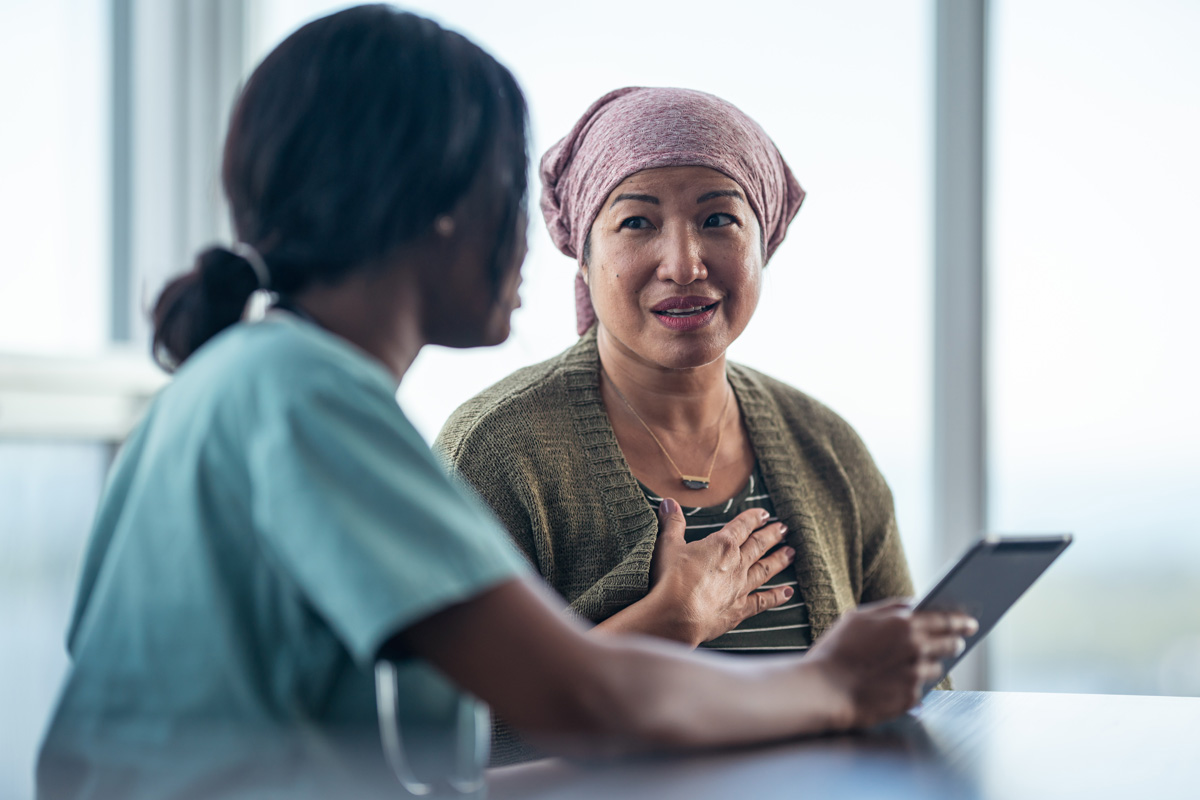- Home
- Patient Support
- Integrative Cancer Care
- Exercise therapy

Exercise therapy
Following a cancer diagnosis, an appropriate exercise program can have positive benefits on the body and overall quality-of-life.1
What is exercise therapy?
Recent research has shown that physical activity can influence cancer outcomes and play a role in the cancer treatment journey.1-3 It may be an important part of your overall treatment, regardless of the type of treatment you may have, such as radiation therapy, chemotherapy, immunotherapy, hormone therapy or a combination of any of these.
What are the benefits?
Exercise before surgery
Following a cancer diagnosis, surgery may be part of the treatment process. Sometimes, there may be a delay before surgery is carried out. An appropriate exercise program before surgery, even if it is short, can help to prepare your body for surgery and assist in speeding up recovery.4 If you are reading this before you have surgery, it’s not too soon to ask your doctor about exercise.

Exercise during treatment
Therapies used to treat cancer may have numerous side-effects. While your doctor(s) will aim to optimise your treatment’s effectiveness while minimising side-effects, some treatments can have a significant impact on your body and quality-of-life. Incorporating a personalised exercise program into your overall treatment plan may help to manage some of the side effects of your treatment as well as help to improve your overall well-being.1,5-7 In some cases, exercise can prevent, reduce and even reverse treatment related side-effects.8,9

Exercise after treatment
After treatment, exercise can help to restore muscle mass, strength and improve physical function and cardiovascular capacity1,10-12 – all factors that may be adversely affected during cancer treatment. Exercise may also help to manage the long-term and late effects of treatment, as well as help promote long-term function, health and survival.1,13,14
How much exercise?
Considerable research and clinical evidence have established that exercise may be beneficial for people with cancer; however, there is no one-size-fits-all approach.2,3 Every person’s circumstances are unique and these should be taken into account. Tailored exercise programs designed by an exercise professional that include both aerobic and resistance training activities have been shown to provide benefits.15 We know that becoming more active and/or learning to do new activities may seem difficult during treatment and early recovery. We recognise that some days can be better than others during treatment, and our approach is to encourage you to do what you can in a supportive and understanding environment.
Read next

News room - What's been happening
From new centres and equipment to the latest in care, stay on top with what we are doing. Find out more today.

Who we are
We are more than 5,500 highly trained healthcare professionals and support staff across Australia, the UK, Spain and the U.S., offering evidence-based cancer care, and aiming to achieve the best possible clinical outcomes.

Dealing with loss
Dealing with loss can be a challenging and difficult time. We’ve prepared this page to help you understand how you may be feeling in the days and weeks after a loss.

Helpful organisations
You may find this list of organisations to be a supportive resource for yourself or a loved one.
- Fuller JT, Hartland MC, Maloney LT, et al. Therapeutic effects of aerobic and resistance exercises for cancer survivors: a systematic review of meta-analyses of clinical trials. Br J Sports Med 2018;52(20):1311.
- Campbell KL, Winters-Stone KM, Wiskemann J, et al. Exercise guidelines for cancer survivors: Consensus statement from international multidisciplinary roundtable. Med Sci Sports Exerc 2019;51(11):2375–2390.
- Hayes SC, Newton RU, Spence RR, et al. The Exercise and Sports Science Australia position statement: Exercise medicine in cancer management. J Sci Med Sport 2019;22(11):1175–1199.
- Singh B, Toohey K. The effect of exercise for improving bone health in cancer survivors - A systematic review and meta-analysis. J Sci Med Sport 2022;25(1):31–40.
- Kessels E, Husson O, van der Feltz-Cornelis, CM. The effect of exercise on cancer-related fatigue in cancer survivors: a systematic review and meta-analysis. Neuropsychiatr Dis Treat 2018;14:479–494.
- Belloni S, Arrigoni C, Caruso R. Effects from physical exercise on reduced cancer-related fatigue: a systematic review of systematic reviews and meta-analysis. Acta Oncol 2021;60(12):1678–1687.
- Schumacher O, Luo H, Taaffe DR, et al. Effects of exercise during radiation therapy on physical function and treatment-related side effects in men with prostate cancer: A systematic review and meta-analysis. Int J Radiat Oncol Biol Phys 2021;111(3):716–731.
- Boing L, Vieira MCS, Moratelli J, et al. Effects of exercise on physical outcomes of breast cancer survivors receiving hormone therapy - A systematic review and meta-analysis. Maturitas 2020;141:71–81.
- Yunfeng G, Weiyang H, Xueyang H, et al. Exercise overcome adverse effects among prostate cancer patients receiving androgen deprivation therapy: An update meta-analysis. Medicine (Baltimore) 2017;96(27):e7368.
- Galvão DA, Spry N, Denham J, et al. A multicentre year-long randomised controlled trial of exercise training targeting physical functioning in men with prostate cancer previously treated with androgen suppression and radiation from TROG 03.04 RADAR. Eur Urol 2014;65(5):856–864.
- Galvão DA, Taaffe DR, Spry N, et al. Exercise preserves physical function in prostate cancer patients with bone metastases. Med Sci Sports Exerc 2018;50(3):393–399.
- Juvet LK, Thune I, Elvsaas IKO, et al. The effect of exercise on fatigue and physical functioning in breast cancer patients during and after treatment and at 6 months follow-up: A meta-analysis. 2017;33:166–177.
- Friedenreich CM, Neilson HK, Farris MS, et al. Physical activity and cancer outcomes: A precision medicine approach. Clin Cancer Res 2016;22(19):4766–4775.
- McTiernan A, Friedenreich CM, Katzmarzyk PT, et al. Physical activity in cancer prevention and survival: A systematic review. Med Sci Sports Exerc 2019;51(6):1252–1261.
- Buffart LM, Kalter J, Sweegers MG, et al. Effects and moderators of exercise on quality of life and physical function in patients with cancer: An individual patient data meta-analysis of 34 RCTs. Cancer Treat Rev 2017;52:91–104.
Disclaimer:
This website is provided for information purposes only. Nothing on this website is intended to be used as medical advice, or to diagnose, treat, cure or prevent any disease. It should not be used as a substitute for your own health professional's advice. Any medical procedure or treatment carries risks. Before proceeding with treatment, you should discuss the risks and benefits of the treatment with an appropriately qualified health practitioner. Individual treatment outcomes and experiences will vary.



